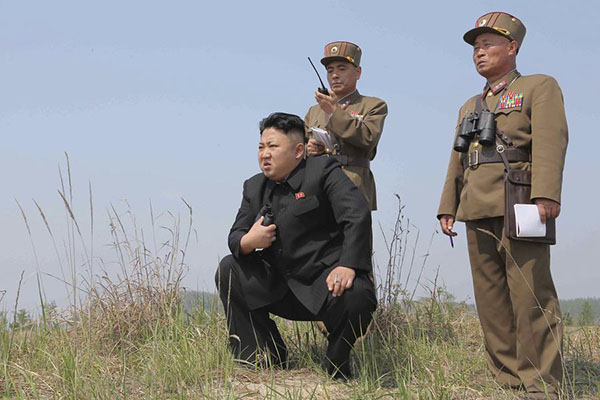 |
|
The Democratic People's Republic of Korea?leader Kim Jong Un (C) guides the multiple-rocket launching drill of women's sub-units under KPA Unit 851, in this undated file photo released by North Korea's Korean Central News Agency (KCNA) April 24, 2014. [Photo/Agencies] |
WASHINGTON -- The White House on Tuesday condemned the new satellite launch plan of the Democratic People's Republic of Korea (DPRK), urging a swift response of the international community to what it called "another irresponsible provocation."
"I feel confident in telling you that the international community would regard a step like that by the North Koreans(DPRK) as just another irresponsible provocation and a clear violation of their international obligations," White House spokesman Josh Earnest told a daily news briefing.
The DPRK has informed three United Nations entities of its intentions to launch an earth-observation satellite between Feb. 8 to 25, a U.N. spokesman said Tuesday.
But the DPRK side has not yet confirmed the plan.
Earnest said the United States has worked closely with China, South Korea, Russia and Japan to convey to Pyongyang the need to "end their provocative actions."
Also on Tuesday, the US State Department urged the international community and the UN to respond quickly and impose new sanctions against Pyongyang.
"The UN Security Council has a role to play by holding it (the DPRK) accountable by imposing a tough, comprehensive and credible package of new sanctions and by ensuring vigorous enforcement of the resolutions already adopted," State Department spokesman John Kirby said on a daily news briefing.
"This latest announcement further underscores for the international community to send the North Koreans(DPRK) the swift firm message that their disregard for the UN Security Council obligations will not be tolerated," Kirby said.
The Obama administration has been mulling additional sanctions against the DPRK in response to its recent nuclear test.
The DPRK said it successfully tested a hydrogen bomb last month. However, this was met with scepticism by US and South Korean officials and nuclear experts.